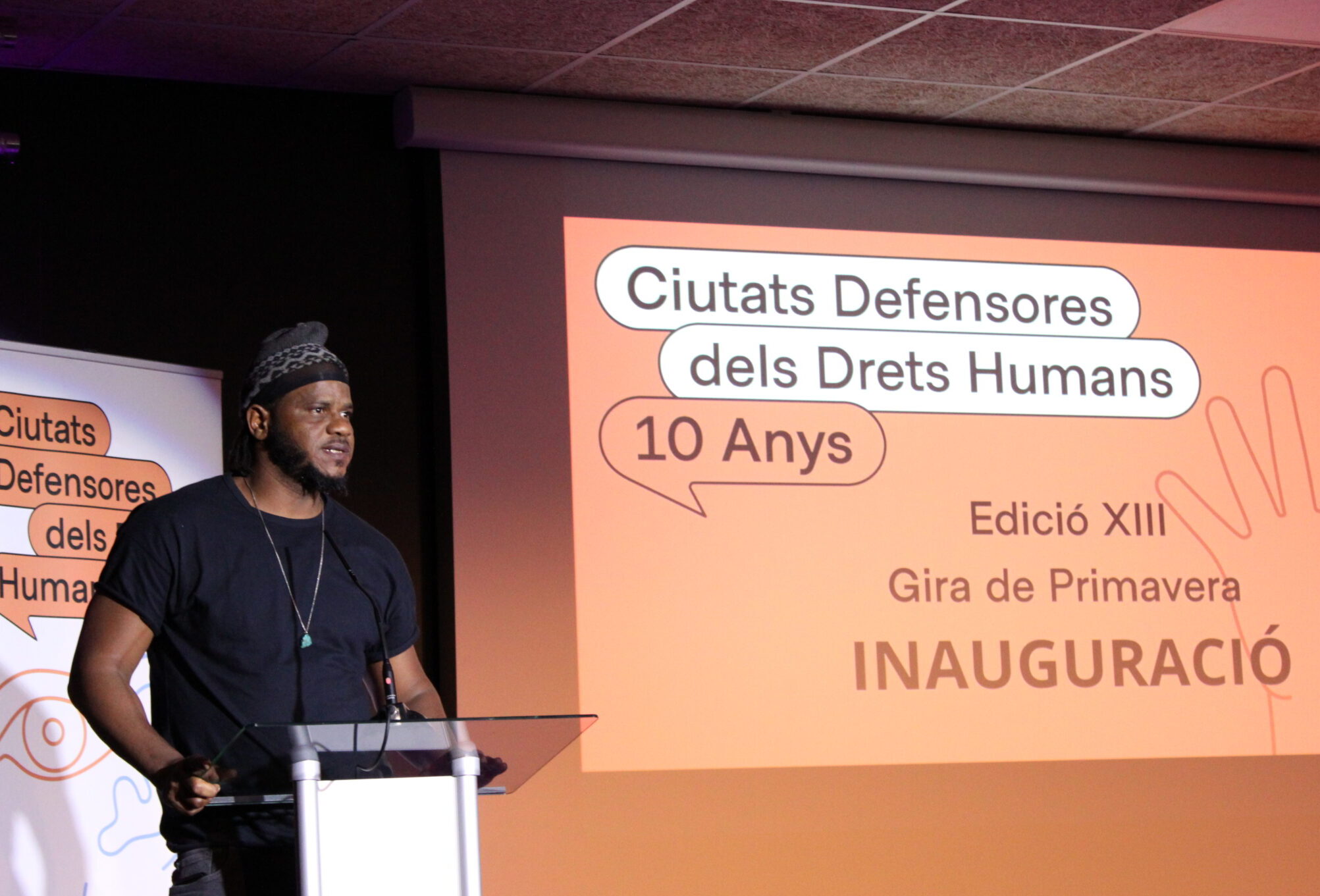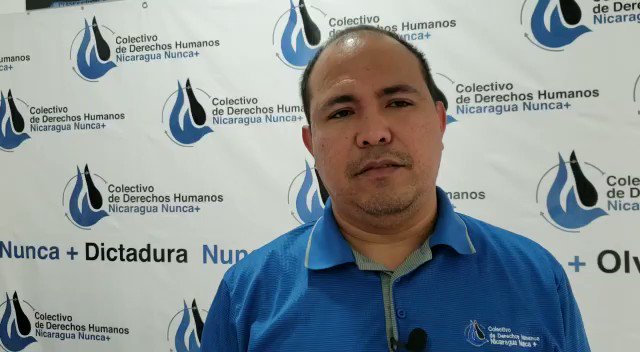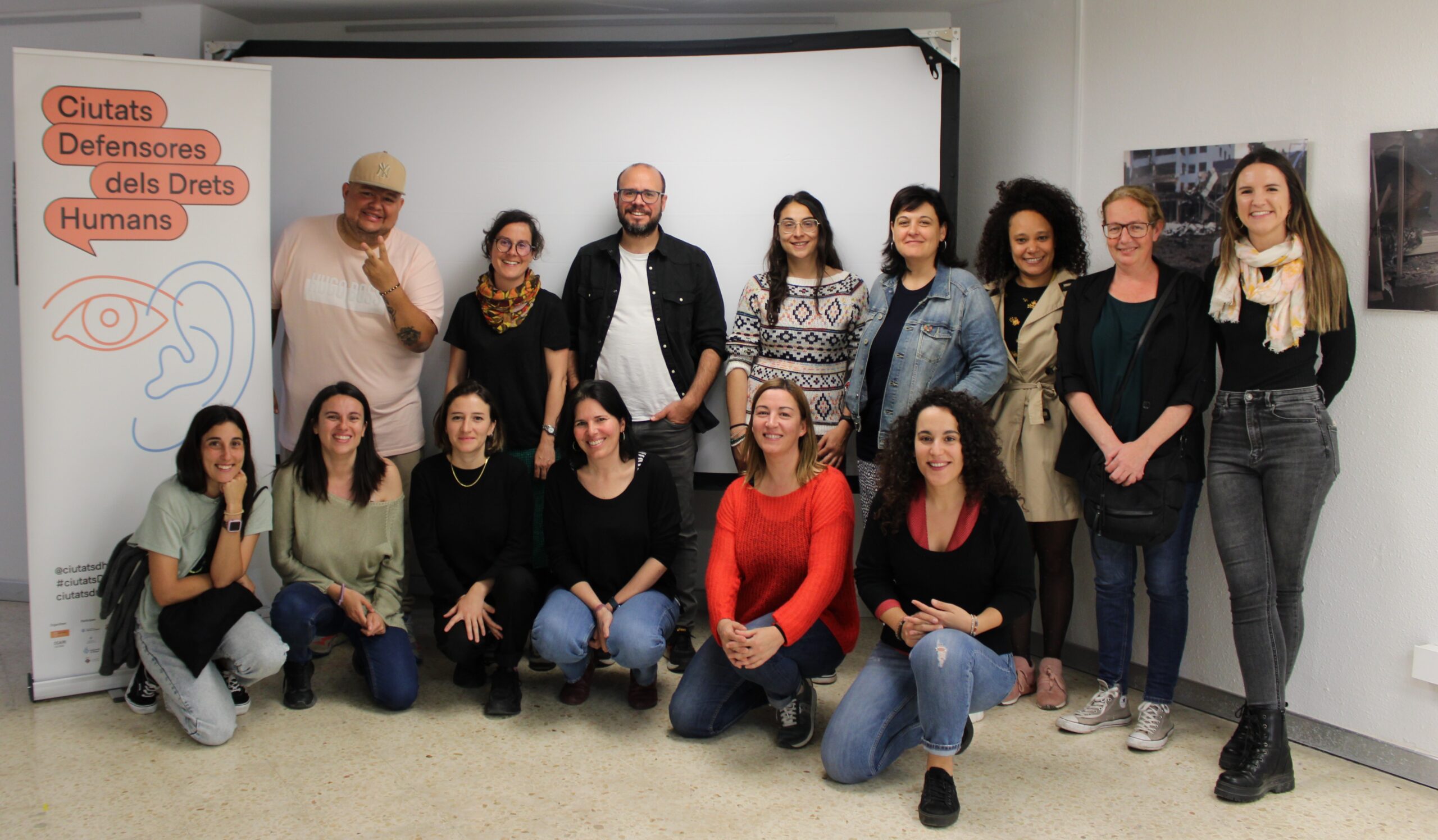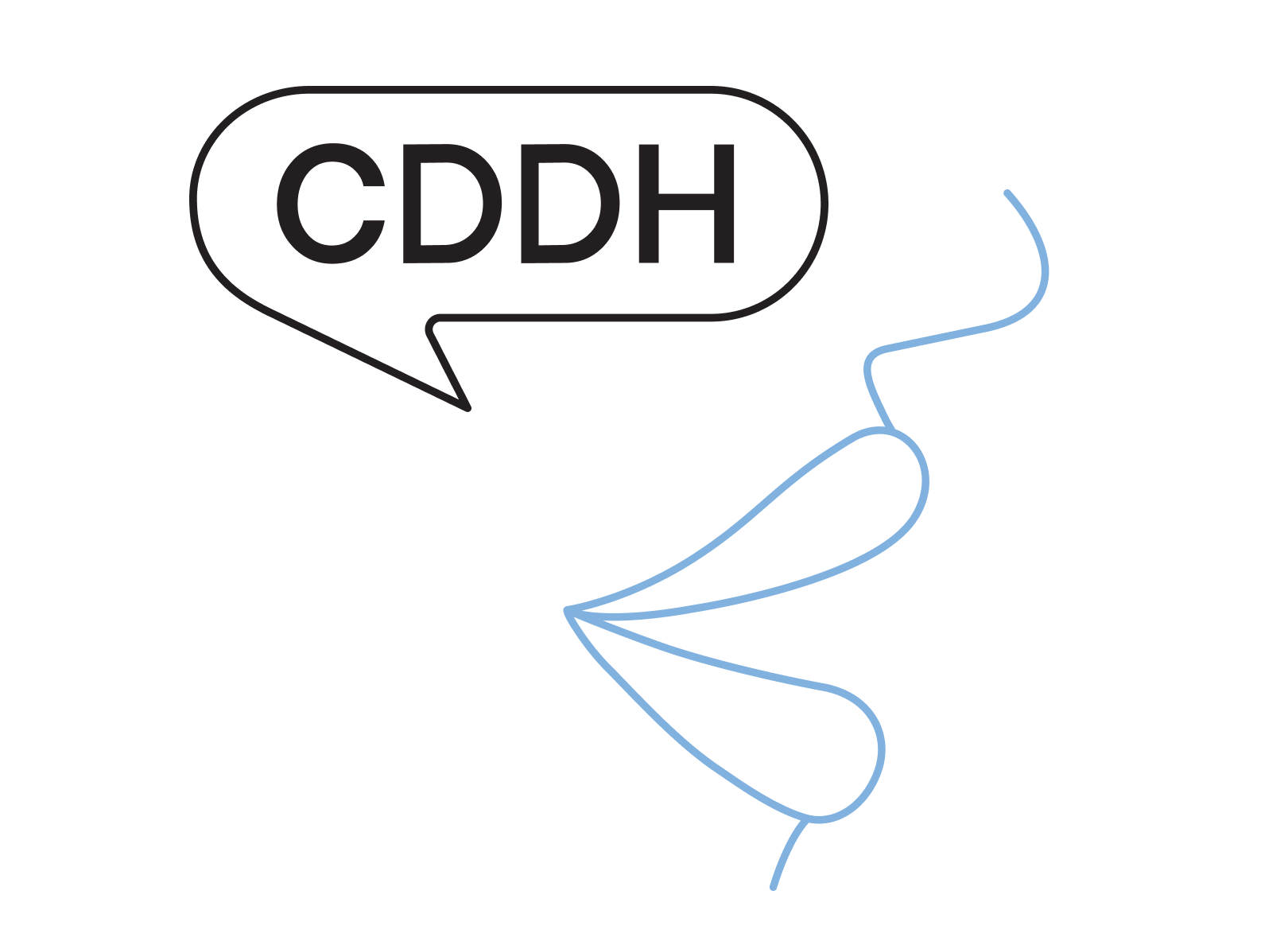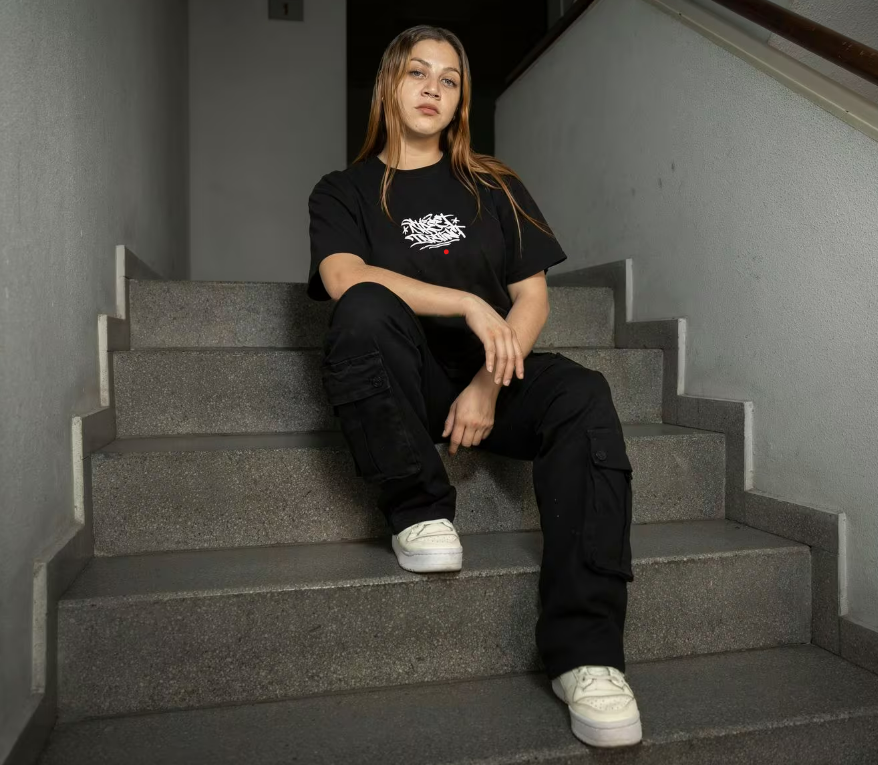After the protests that broke out in April 2018 in Nicaragua, an increasingly authoritarian regime has inflicted harsh persecution and criminalization on dissident voices, causing an exodus of 725 thousand people – 11% of the population – in these last five years, exacerbated by a serious economic crisis.
Among the Nicaraguans who had to flee persecution and settle in the neighboring country of Costa Rica, a group of human rights defenders, lawyers and journalists founded the Human Rights Collective Nicaragua Nunca Más with the aim of documenting the human rights violations perpetrated in Nicaragua and doing a work of historical memory that can guarantee a process of justice and reparation and with guarantees of non-repetition. At “Cities Defending Human Rights” we met one of its members, Wendy Quintero, last April, on the occasion of the spring tour of the XIII edition of the program to which she was invited.
In May, the Nicaraguan Observatory against Torture of the same group published its eighth report on the Systematization of 158 cases of torture in the country. This work of documentation, systematization and analysis covers the period between 2018 and 2022 and collects the anonymous testimonies of political prisoners who are victims of what the report defines as the “state terror system”.
Carlos Guadamuz, a Nicaraguan lawyer and member of the Collective’s documentation and support team, is one of the authors of this report. He has been living in Costa Rica as a refugee since 2019, although his career as a human rights defender dates back to 2005, when he was a member of the Nicaraguan Center for Human Rights (CENIDH).
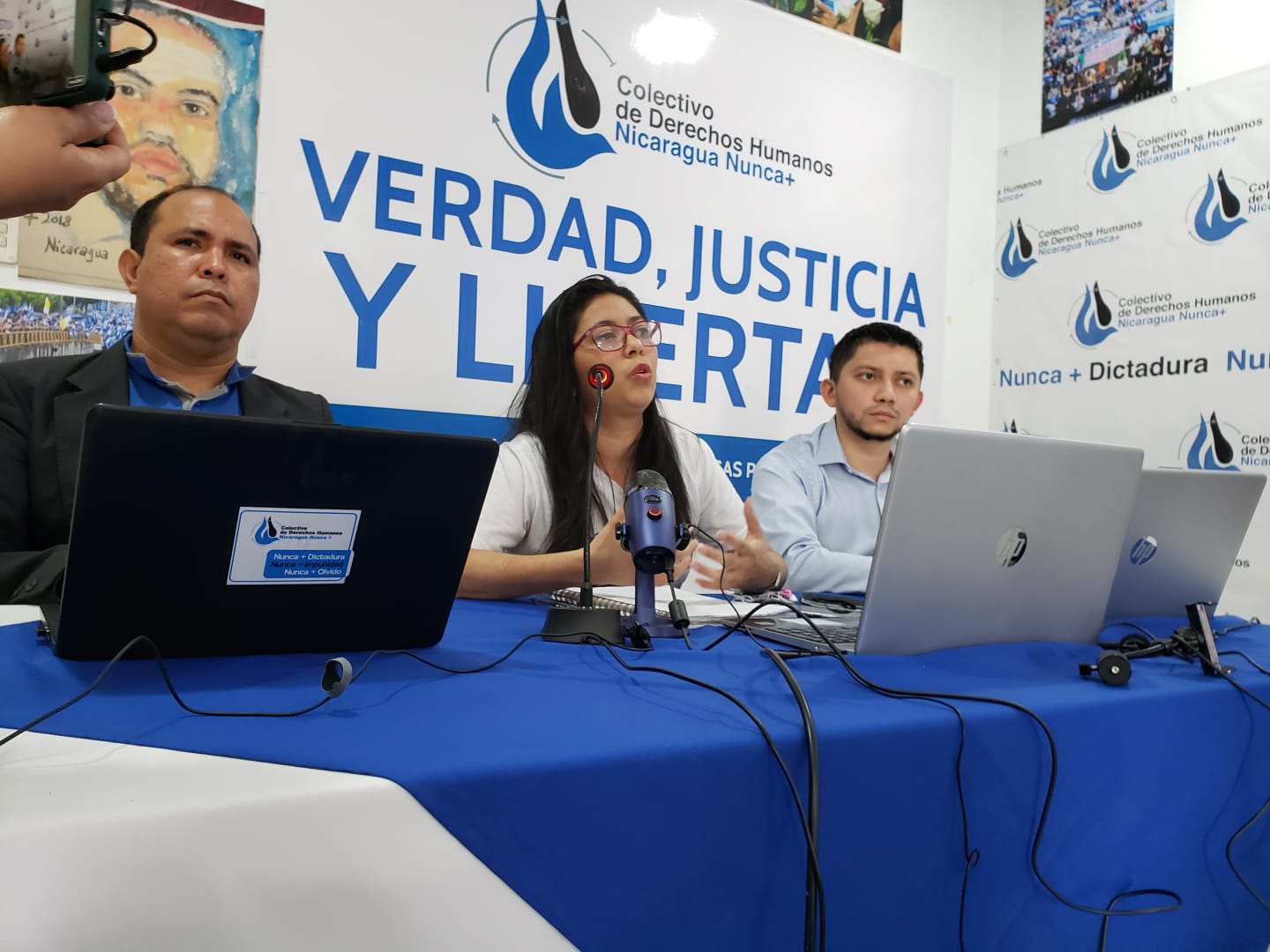
In your report you document acts of torture and inhumane practices carried out, including: beatings, degrading verbal treatment, death threats, sleep and food deprivation, forced nudity and other forms of sexual violence. Who are the victims? Have you identified any common factors?
The profile of the victims is very varied, from presidential candidates to journalists, people from civil society, farmers, human rights defenders, there are even relatives of victims, of people who were killed or who had previously been political prisoners. Even so, it is not just about opponents, since there were also people linked to the regime itself, such as ex-combatants of the parastatal forces and public officials. In this way, Ortega intends to intimidate his own power structure: in June 2023, in fact, the National Assembly approved a reform to the penal code, to the national police law, which typified the crimes of desertion and disobedience, establishing prisons for those police officers who deserted. This is a very twisted reform that eliminated the fact that the police force was apolitical, non-partisan, non-belligerent, and that it only owed evidence to the Constitution, although today in Nicaragua the word “Constitution” is synonymous with “Daniel Ortega”, since it does not represent for him any limit to his power, to the abuse of his authority.
Of the cases of victims of torture that you identify in the report, 130 are men and 28 are women. Did you notice any difference between women and men regarding the torture practices implemented?
Yes, torture has been differentiated for women. Since they are arrested for political reasons, they are subjected to forced nudity, to touches, to be requisitioned, they are also told that they are bad mothers for getting in where they “do not belong”, in other words, reproaching that women cannot dedicate themselves to public affairs, they cannot have an opinion on the problems that they care about their country. Likewise, during detention, they are not guaranteed the right to see their children and relatives, the latter being often exposed to hostile treatment by prison officials. However, gender discrimination does not only affect the victims themselves, but also women prisoners. In Nicaragua, women are the ones who, in the vast majority, take care of their children, therefore, lacking the difficult reintegration of their husbands into work, they have to deal with the consequences of how to feed their families, how to guarantee their children’s education; all this falls on them.
In your latest report, you collect the testimonies of 158 cases of victims of turture. I assume that the number of victims is actually much higher.
Indeed, there is a very large number of people who have not presented their testimony for different reasons, – out of fear, for example, – although in our report you will not find the names of the people, but a code that we assign and that corresponds to an internal file. In addition, the fact that a person reports in Nicaragua exposes him or her to being criminalised: since 2020, the National Assembly has been a factory of repressive laws, imposing crimes and penalties on people who dare to speak.
To which country do the victims usually emigrate? And in what conditions do they live?
There are a significant number of Nicaraguans in Costa Rica and the United States, although the asylum system is unfortunately not up to the standards we expect. Some also emigrate to Europe, although this is a smaller number, since many do not have the financial capacity to go there. Both in Costa Rica, due to socioeconomic conditions and legal restrictions, as well as in the United States, where there is an additional obstacle due to the language, the process of overcoming, sanitizing and reinserting into community life after the torture is not facilitated in any way. For example, here in Costa Rica, some of the imprisoned or tortured people who arrived since 2018 have not yet even received a resolution approving that they are refugees. To access the refugee category they must pay, they must prove that an employer will hire them and that this employer complies with all legal standards. These are conditions that are really incompatible with the material capacity, with the situation of a person who has been subjected to torture.
So is it almost impossible for victims to receive psychosocial care?
Yes, it is quite difficult because to receive care you must have housing, food, and access to health. These three elements are not immediately fulfilled, neither in Costa Rica, nor in the United States. That is why they live in worrying conditions; the impact left by the torture prevent them from resuming their simplest daily activities, such as sleeping or being able to concentrate.
After the publication of the report, did you receive any kind of threat, either from the Nicaraguan government or from some people linked to the regime?
There have been threats, there have been attacks on our website and disqualifications to our team. We’ve had a few incidents that I’d rather not talk about because it could affect the safety of a team member.
What kind of impact do you want to have with this report? To whom is it addressed?
This report is an work of historical memory and is directed in the first place to the Nicaraguan people, with the aim of bearing witness to all the abuses perpetrated, the crimes against humanity, which, in the specific case of the report, are the tortures. We want to denounce that torture has become institutionalized in Nicaragua; Daniel Ortega has made it common in the daily life of Nicaraguans. In the same way, the report is directed to the international community, so that it knows what is happening in Nicaragua, and to the governments, so that they can define their foreign relations policies, taking into account that Nicaragua is a state of exception that commits crimes against humanity including torture, sufficiently documented. We also urge the democratic governments to gather efforts to make Nicaragua respect the obligations that the country has assumed through the Universal Declaration of Human Rights and the American Convention on Human Rights. Nicaragua wants freedom, it wants democracy, Nicaragua wants to have a political Constitution. In my country there is absolute silence where people cannot speak, raise their voice. Then we hope that this report will be useful so that all political sectors are aware that Daniel Ortega is ready to use all the resources and assets of the State and that it does not represent any ideological thinking, it is a dictatorship of “all for the sake of power“.
